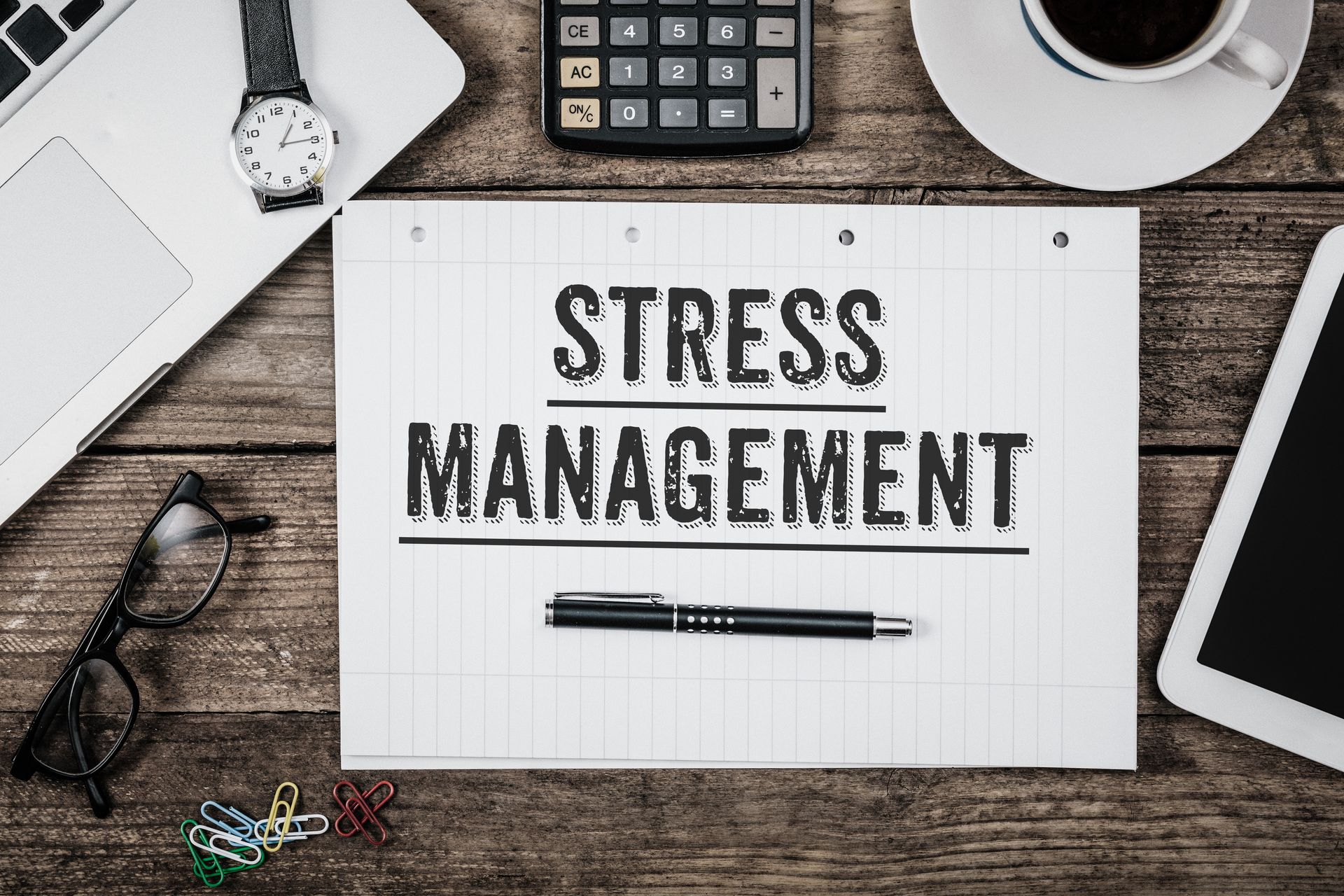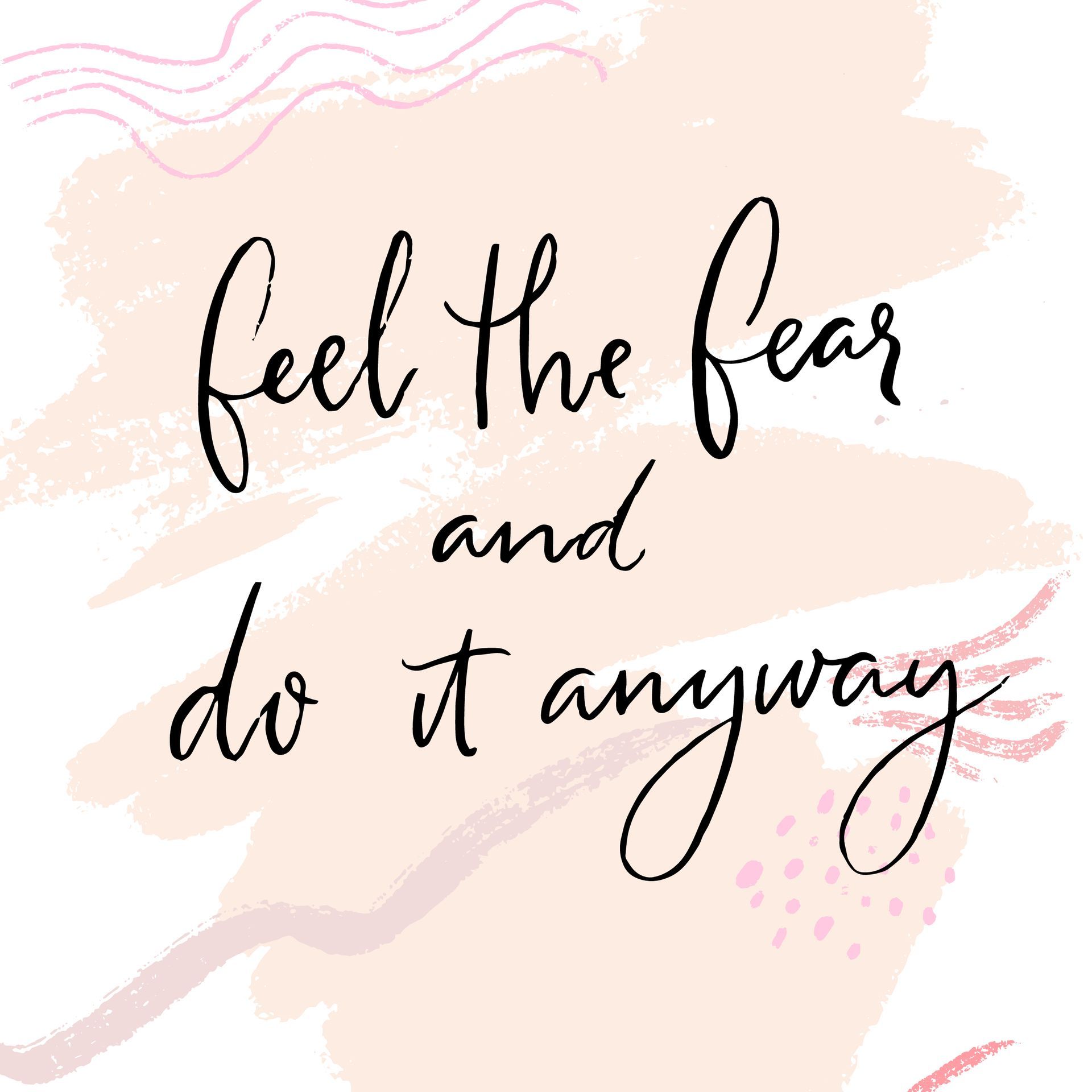Learn about stress
Stress is a normal feeling. It is primarily a physical, automatic, unconscious, first response, and emotional reaction that people experience when they feel threatened or under pressure. Stress is a part of our life and is a good feeling in the right amount, as it keeps us safe and motivated to keep going with life's tasks.
When people experience positive stress, they are stimulated, excited, and energetic. When stress is caused by physical danger, such as traveling back in time when our ancestors had to fight a bear or lion, the chemicals produced in our bodies to respond to stress were, and still are, beneficial as they give us more energy and strength, speed up our reaction time, and enhance our focus to fight or flee from the threat. Historically, stress was physical, and we needed it to survive physical attacks.
Stress turns on the sympathetic nervous system, which is part of the nervous system and contributes to what is known as the 'fight or flight' response. However, in the past, when our ancestors were safe and the fight was over, the body would usually return to the pre-emergency, unstressed state and activate the parasympathetic nervous system, which is the quiet 'rest and digest' system.
Stress becomes a problem when the body does not return to the quiet 'rest and digest' mode. This happens because nowadays, the 'danger' can be a perceived threat. It is our perception of the stressor that determines whether it becomes 'stress'. Understanding the risk is more complicated, or simply put, people experience multiple or mixed life stressors these days. In some cases, the stress is long-term.
Furthermore, everyone is different, and not everyone reacts to life's stressors in the same way. Stressors can be internal thoughts or external stimuli. The causes of stress can include work (such as job loss or being unhappy in a job), the death of a loved one, divorce, financial worries, getting married (positive stress), moving to a new home, chronic illness or injury, a traumatic event, poor nutrition, and relationships.
Sometimes stress comes from within, rather than outside. You can stress yourself out by worrying or over-analysing, feeling fear and uncertainty, consuming media overload, especially when listening to negative news that promotes pessimistic and dramatic messages, where we feel threatened but have no control. People who are controlling, perfectionists, overly responsible, pessimistic, who compare themselves to others, and are inflexible thinkers are usually more prone to stress.
What happens in our bodies when we are stressed?
- The first response to a stressor is immediate, automatic, and unconscious through the sympathetic nervous system. The body's chemistry changes instantly, with a flood of hormone secretion in the 'fight or flight’ response.
- The eyes open wide (pupils dilate-to see the physical threat).
- The digestive system effectively shuts down, causing our digestive muscles to contract more or less frequently (we were not meant to be digesting food as we were running away from the lion). This explains why some people stop eating under prolonged stress, and others increase comfort eating/alcohol, resulting in weight gain or loss. It also explains 'butterflies' in the stomach or even abdominal pain.
- When we are stressed, the respiratory system is affected as we breathe faster and more shallowly in an effort to quickly distribute oxygen-rich blood around the body.
- The endocrine and nervous systems will produce ‘stress hormones’. The most familiar stress hormones are cortisol, epinephrine, and norepinephrine (adrenaline and noradrenaline), causing us to make more glucose (sugar) so we can have more energy (to run away from that lion).
- The musculoskeletal system tenses up. Our muscles contract, which is the body's natural way of protecting ourselves from injury and pain. However, prolonged periods of muscle tension can cause body pains, headaches, and migraines.
- The cardiovascular system causes an increase in heart rate, as well as an increase in blood pressure.
When the stress has passed, everything returns to normal, or is supposed to. However, chronic stress can cause damage to blood vessels and arteries, increasing the risk of a heart attack or stroke. Stress also suppresses our immune system, making us more vulnerable to infections and chronic inflammatory conditions as our ability to fight off illness is reduced.
As mentioned earlier, the main hormones secreted in the body during stress are adrenaline, noradrenaline, and cortisol. In short, stress starts with a ‘domino effect’ called the Hypothalamus-Pituitary-Adrenal Axis. A series of interactions between endocrine glands in the brain and on the kidneys produce various hormones to regulate the stress response, allowing our bodies to deal with the physical and emotional stresses in life.
The hypothalamus, located in the brain, plays a key role in connecting the endocrine system with the nervous system. It secretes signals that stimulate the pituitary gland, which is actually the mother of all hormone glands in the brain. The pituitary then stimulates the adrenal glands, which sit on each kidney and secrete cortisol and adrenaline. The adrenal cortex outside the adrenal glands releases cortisol, while the medulla inside the adrenal gland releases adrenaline. This creates the stress response mentioned earlier: increased heart rate, increased blood pressure, glucose in the blood, faster and shallower breathing, sweating, and a faster heartbeat. We become ready for ‘fight or flight’.
Now, let's explore cortisol, adrenaline, and insulin
Cortisol is a stress hormone within your body. It is a vital factor in metabolism, as it helps our bodies organise how to use sources of energy (proteins, carbohydrates and fats). Normal levels of cortisol help the body control blood sugar levels, regulate metabolism, reduce inflammation, assist with memory formation, and regulate the stress response.
Prolonged stress can increase cortisol in your body, leading to symptoms such as mood swings, food cravings, brain fog, interrupted sleep, and anxiety. Furthermore, it can affect bone density, break down muscle tissue, and imbalance blood sugar. Cortisol also leads to an increase in insulin resistance.
How does this happen?
Another name for cortisol is glucocorticoid, which indicates that it has something to do with glucose (sugar). Cortisol has the potential to significantly raise your blood sugar. When we are stressed, we have a flood of sugar in our blood. Then, the body produces insulin to regulate and drop the level of sugar in the bloodstream. If the sugar/energy/glucose is not used (for example, in the ‘fight’), it is stored as fat, and cortisol will drive the storage of fats around the organs, particularly around the midsection. Simply put, cortisol can also make us fat, as it is connected with abdominal fat, otherwise known as belly fat. Therefore, someone who is constantly under stress, which constantly produces cortisol, which constantly produces insulin, can become insulin resistant.
Adrenaline is a hormone responsible for the ‘fight or flight’ response, which causes a person to become more energetic, strong, alert, or, in other words, to have ‘superpowers’. Adrenaline releases glucose from your liver and muscles so that you have more energy to ‘fight or flight’. However, too much adrenaline can be harmful because it burns you out. The sudden spike of energy fueling your body, by the glucose levels in your bloodstream, can lead to a ‘sugar crash’ later. This is the same thing that happens when we eat too much sugar and carbs. Too much adrenaline can weaken your immune system, affect your heart, and create cardiovascular diseases. It can also damage your DNA, leading to ageing, depression, anxiety, and even tumor growth. Adrenaline is triggered by the feeling of fear, as well as stress.
So, both adrenaline and cortisol prepare the body for a stress response, with adrenaline acting within seconds and cortisol taking a few minutes to kick in. However, nowadays there is no easy way to deactivate the stress response and activate the parasympathetic ‘rest and digest’ system as an off switch. This is because there are too many stressors around us constantly, creating prolonged stress that chronically stimulates the adrenals to produce cortisol and adrenaline all the time.
It is also well known that stress can kill brain cells and even reduce the size of the brain. Chronic stress affects parts of the brain such as the amygdala and hypothalamus, which play an important role in memory, learning, dealing with stress, decision-making, concentration, and judgment. This means that chronic stress might make it harder to learn and remember things, as well as set the stage for more serious mental problems like depression and eventually Alzheimer's disease.
In conclusion, stress is an inevitable part of life, and the body's response to it is a complex process that involves various hormones and glands. The ‘fight or flight’ response, which is triggered by adrenaline and cortisol, prepares the body for a stress state, allowing it to deal with the physical and emotional stresses of life. However, prolonged stress can lead to an overproduction of these hormones, which can have detrimental effects on the body, including increasing the risk of obesity, insulin resistance, brain disorders and cardiovascular diseases.
In today's fast-paced world, stressors are constantly present, making it difficult for individuals to deactivate their stress response and activate the parasympathetic ‘rest and digest’ system. It is crucial for individuals to manage their stress levels and develop coping mechanisms to prevent chronic stress from taking a toll on their physical and mental health. This can be achieved through various methods such as exercise, meditation, deep breathing, and talking to a mental health professional.
Overall, understanding the effects of stress on the body and developing effective stress management techniques is crucial for maintaining good health and wellbeing. By taking care of our physical and mental health, we can lead happier and more fulfilling lives.






